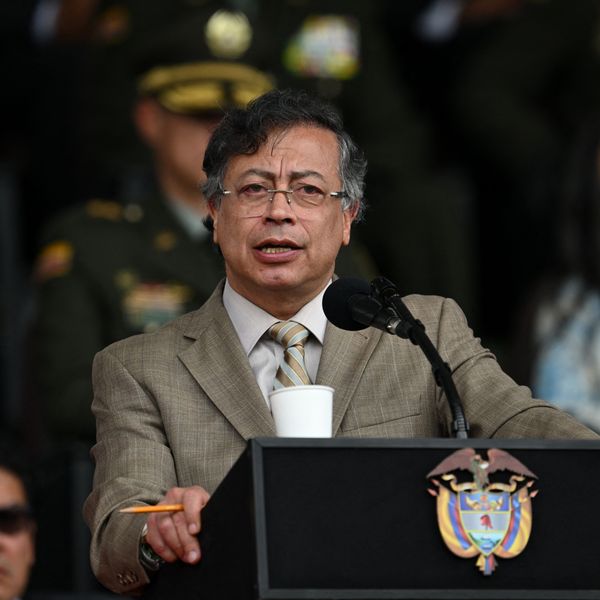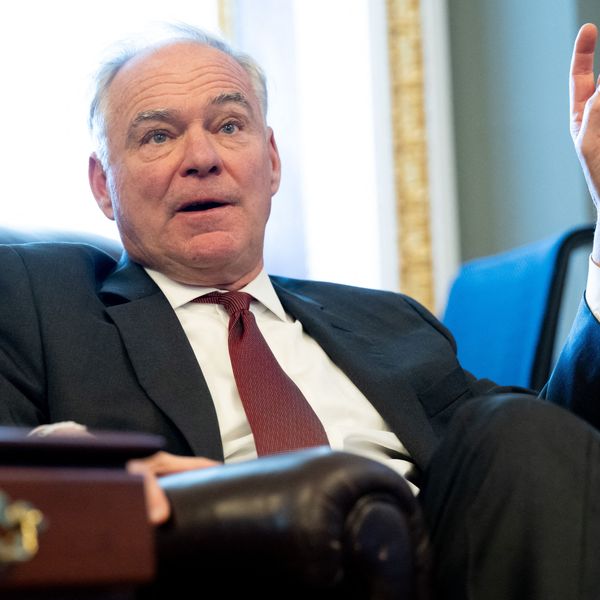Bernie Sanders on Wednesday evening slammed U.S. drug policy and called for the lifting of the federal prohibition on marijuana.
The presidential hopeful made the remarks at a town hall meeting at George Mason University.
"In the United States we have 2.2 million people in jail today, more than any other country. And we're spending about $80 billion a year to lock people up. We need major changes in our criminal justice system--including changes in drug laws," the U.S. Senator from Vermont said.
He said that in 2014, there were 620,000 marijuana possession arrests. "That is one arrest every minute," he said. Sanders also cited an ACLU report that showed that there were over 8 million marijuana arrests from 2001 to 2010, almost 9 in 10 of which were for possession.
"And let us be clear," he continued, "that there is a racial component to this situation. Although about the same proportion of blacks and whites use marijuana, a black person is almost four times more likely to be arrested for marijuana possession than a white person."
"Too many Americans have seen their lives destroyed because they have criminal records as a result of marijuana use. That's wrong. That has got to change," he said to applause.
As the Washington Post points out,
In a 2013 memo, the Justice Department essentially agreed to look the other way in states where marijuana is legal, provided that the marijuana industry in those states remained in compliance with state laws. But that memo is not legally binding, and a new administration or a new attorney general could easily reverse course.
Sanders said it was "absurd" that the federal government has pot listed as a Schedule I drug--the same category as heroin--which designates it as having a high potential for abuse and no currently accepted medical uses.
Echoing the calls (pdf) of drug policy reform advocates, he said, to cheers, "In my view, the time is long overdue for us to remove the federal prohibition on marijuana."
NBC News reports that Sanders' proposal "would be a dramatic departure from decades of federal drug policy. And while Sanders stopped short of calling for the full legalization of marijuana, he is now closer to it than any other candidate in either party."
"In the year 2015 it is time for the federal government to allow states to go forward as they best choose," he continued. "It is time to tax and regulate marijuana like alcohol. It is time to end the arrests of so many people and the destruction of so many lives for possessing marijuana."
Michael Collins, deputy director of national affairs for Drug Policy Alliance, told Rolling Stone that his organization, which advocates for pot legalization, has been working with Sanders' office on legislation to end federal marijuana prohibition, and that the legislation could be introduced soon.
Sanders comments at the university come on the heels of a Brookings Institution paper which charges that the U.S. government is stifling research into pot's medical uses.
"Of all the controlled substances that the federal government regulates, cannabis is treated in a unique manner in ways that specifically impede research," Brookings fellow John Hudak and senior research assistant Grace Wallack state. "Statutory, regulatory, bureaucratic, and cultural barriers have paralyzed science and threatened the integrity of research freedom in this area."


